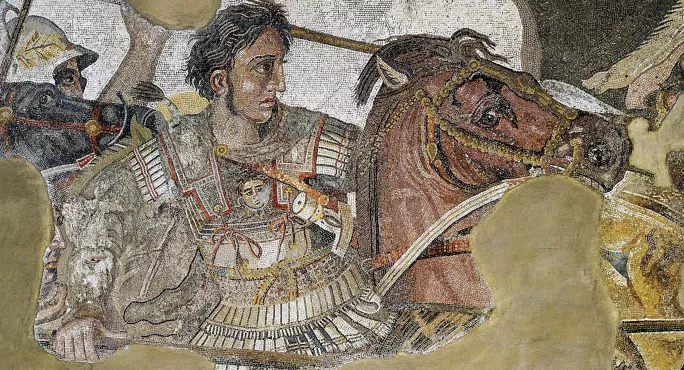- Home
- The ancient art of leadership
The ancient art of leadership

What could some of history’s greatest leaders teach us about management in a modern school? As a busy leader in a large secondary school, and a teacher of Classics and ancient history, I find myself flitting between the challenges of today’s education and the world of antiquity.
Regardless of where and when it happens, leadership is about relationships; working with others to achieve a desired outcome. We can, therefore, learn a huge amount from some of the ancient world’s most prominent leaders.
Alexander the Great
We probably all know the story of Alexander, King of Macedon. He had created one of the largest empires of the ancient world by the time he was 30, before dying aged only 32.
What set him apart as a leader was his ability to articulate a vision and take his men along with it. At the battle of the Granicus in 334BC, he was the first to charge across the river and engage the enemy. During this campaign, Alexander’s body was covered in wounds from every conceivable weapon.
I am not suggesting we literally do the same (although teaching Year 9 on a Friday afternoon can sometimes feel like a similar experience). But the impact on staff and colleagues that such indefatigable leadership can have is immeasurable.
Emperor Augustus
Augustus was the antithesis of Alexander; sickly as a youth, he was apparently appalled at the sight of bloodshed.
Augustus found the Roman Empire in a terrible state on his ascension in 27BC. However, through careful, gradual and subtle change over a long period of time, Augustus built the systems that were to serve the empire for the best part of 400 years.
In doing so he won over the key institutions in Rome including the army, the senate and the people. He realised that solutions to complex problems are rarely simple, and that “quick wins” were comparatively less valuable.
In schools, we are perhaps guilty of trying to seek these simple and quick solutions ourselves: short-term solutions which may tick an Ofsted box, but in the long term can do harm to students’ learning or staff wellbeing. Augustus’s courage, and his focus on fundamental change over a period of time, rooted in core values that never wavered, offer indispensable lessons to us all.
Queen Artemisia
Queen Artemisia of Halicarnassus has been relegated to a mere footnote in history, but her courage and resilience in a world dominated by men are an inspiration. Forced to participate in the disastrous second Persian invasion of Greece in 480BC, she was not afraid to tell her ally, King Xerxes, exactly what she thought, resolutely maintaining her values and morals at a time when many around her were resorting to sycophancy towards the Great King.
Unfortunately, her wise advice was usually ignored – with disastrous consequences.
Most famously, her heroic performance at the Battle of Salamis earned the quip from Xerxes: “Now my men fight like women and my women fight like men.”
Artemisia shows us that our values are what define us as leaders; we should be courageous enough to stick by these, no matter how challenging the situation.
Cyrus the Great
The ancient world is characterised by brutality and repression, but King Cyrus II of Persia’s reign was significantly different. His building of a great empire between 559-530BC was based on the principles of collective leadership and humility.
Rather than imposing his views on others, he sought to empower the people he led and allow all to make telling contributions – sage principles for any school leader. His conquest of Babylon was a case in point. Casting off the shackles of ex-king Nabonidus, Cyrus freed the Jews in the area and even allowed them to return to Jerusalem, rebuilding their temples from his own treasury.
He went on to produce the world’s first example of a human rights charter, the “Cyrus Cylinder”, a copy of which can be found in the Headquarters of the UN. Humility and empathy are core skills in any leader and by invoking the spirit of collective leadership, we can make sure we get discretionary effort from all the staff we work alongside.
Just like Cyrus, by earning the respect of those around us, we can create the kind of alignment that builds organisational momentum.
Anton Kolaric is head of humanities and a teacher of Classics and ancient history at Aldridge School, a large state secondary school in the West Midlands
Register with Tes and you can read two free articles every month plus you'll have access to our range of award-winning newsletters.
Keep reading with our special offer!
You’ve reached your limit of free articles this month.
- Unlimited access to all Tes magazine content
- Save your favourite articles and gift them to your colleagues
- Exclusive subscriber-only stories
- Over 200,000 archived articles
- Unlimited access to all Tes magazine content
- Save your favourite articles and gift them to your colleagues
- Exclusive subscriber-only stories
- Over 200,000 archived articles
